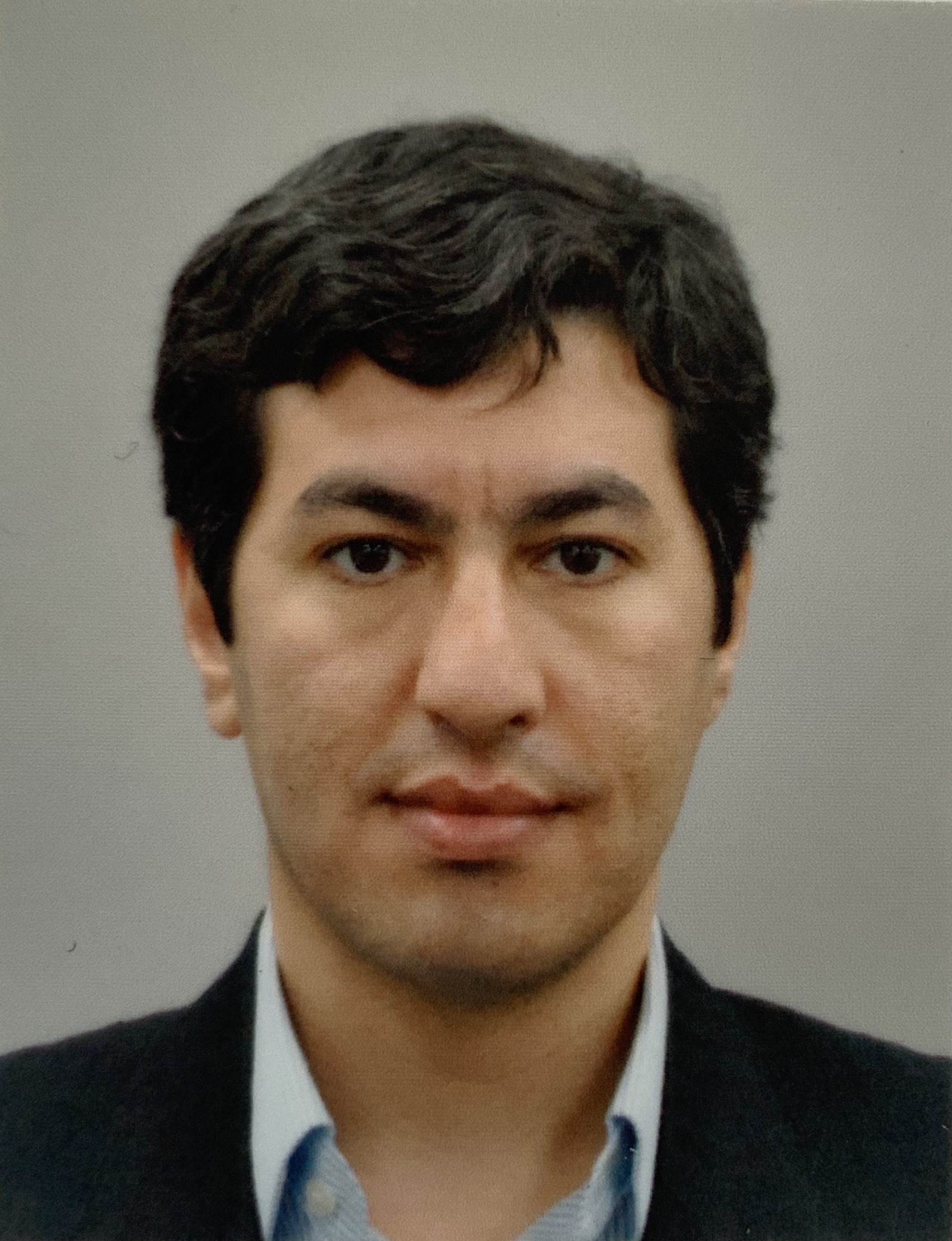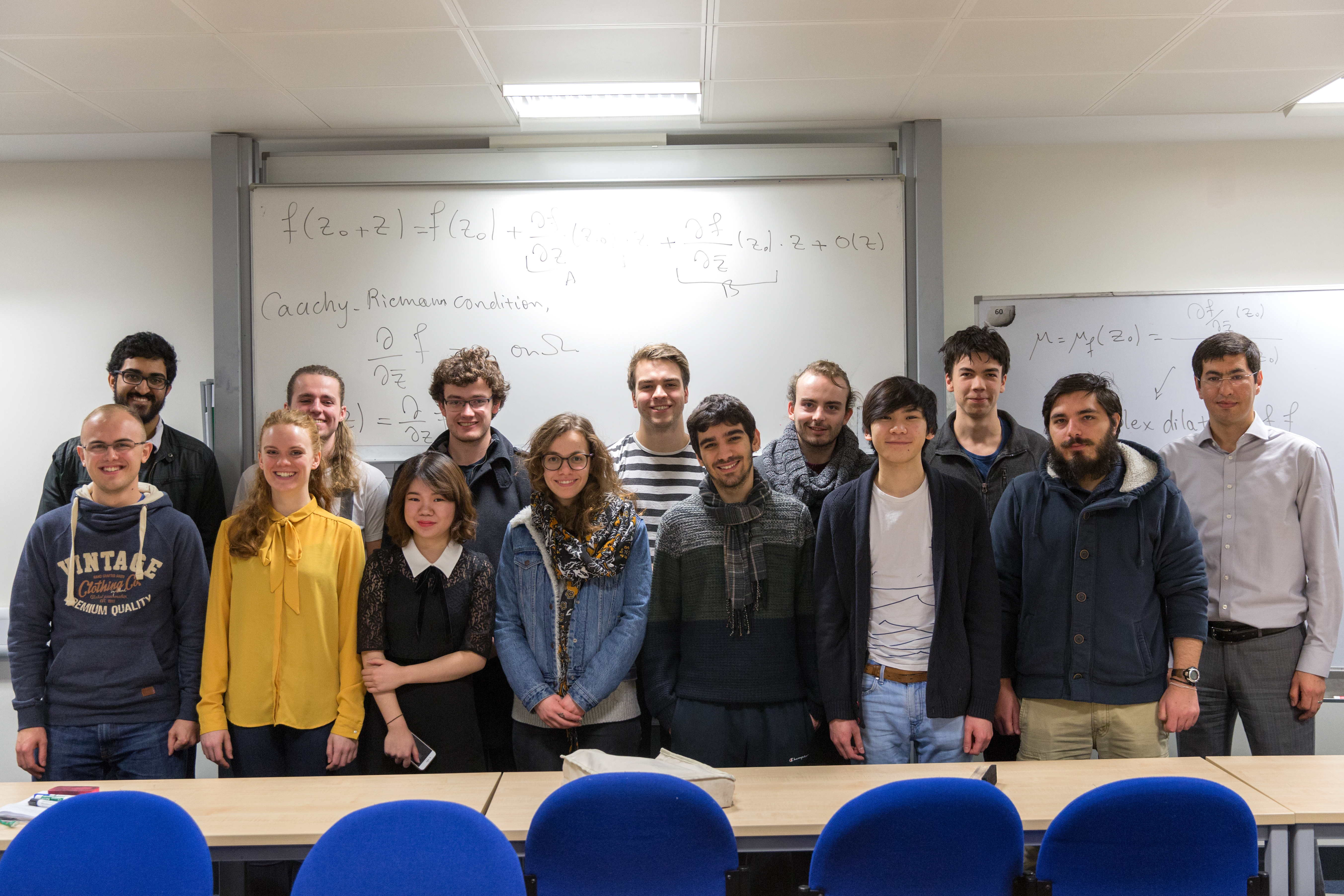

Math M3P60, M4P60, M5P60; Geometric Complex Analysis
Instructor: Davoud Cheraghi
E-mail: d.cheraghi@imperial.ac.uk
Office: Huxley 683
Office hours: Wednesdays 2:00 - 3:00
Student representative for the course: Asad Chaudhary (ahc13@ic.ac.uk)
- Thursdays, 11-12, in Room Huxley 341 (from October 13 to December 8) and in Room Huxley 130 (On December 15)
- Fridays, 12-2pm, in Room Huxley 140 (from October 7 to December 9)
Complex analysis is the study of the functions of complex numbers.
It is employed in a wide range of topics, including dynamical systems, algebraic geometry, number theory, and quantum field theory,
to name a few. On the other hand, as the separate real and imaginary parts of any analytic function satisfy the Laplace equation,
complex analysis is widely employed in the study of two-dimensional problems in physics such as hydrodynamics, thermodynamics,
Ferromagnetism, and percolations.
While you become familiar with basics of functions of a complex variable in the complex analysis course, here we look at the subject
from a more geometric viewpoint. We shall look at geometric notions associated with domains in the plane and their boundaries,
and how they are transformed under holomorphic mappings. In turn, the behavior of conformal maps is highly dependent on the shape
of their domain of definition. Below is a rough guide to the syllabus.
Schwarz lemma, authomorphisms of the disk and the half plane, Riemann sphere and rational functions, normal families, Riemann mapping theorem, Schlicht mappings, growth and distortion estimates, complex dilatations, absolute continuity on lines, quasi-conformal mappings, Beltrami equation, measurable Riemann mapping theorem.
PrerequisitesIt will be assumed that students have had a previous course in complex analysis (such as M2PM3, or a course similar to that). However, this course is not a straight continuation of M2PM3; we shall revisit the basic definitions from geometric point of view, and build up the course from there. If you need more informtion on whether the course is appropriate for you, feel free to stop by my office for a chat (can also make an appointment by email).
Lecture notes
Introduction,
Chapter 1, Preliminaries from complex analysis
Chapter 2, Schwarz lemma and automorphisms of the disk
Chapter 3, Riemann sphere and rational functions
Chapter 4, Conformal geometry on the disk
Chapter 5, Conformal mappings
Chapter 6, Growth and Distortion estimates
Chapter 7, Quasi-conformal mappings and Beltrami equation
Appendix, Hints to exercises and assesed work
You may download the above lecture notes in one file by clicking here.
The lectures are recorded and are available on Panopto. The first two lectures were not recorded, and lectures 3 and 4 might have issues with sound quality. The remaining ones should be fine. They are availble (restricted access to internals) here .
Homeworks
The lecture notes contains a list of exercises at the end of each chapter. These form an integral part of the course and should be solved/attempted by all students who wish to do well in the course.
There are basically two types of exercises; the first type makes sure that you understand the proofs, arguments, and the statements in the lectures, and the second type
prepares and motivates you for the later material in the course.
Half an hour of the lectures on Fridays will be devoted to discussing/solving exercises. If you wish to discuss them in person, feel free to stop by my office during the office hours.
You will be required to hand in two sets of homeworks. These will form 10 percent of the final mark for the module.
The remaining 90 percent is determined by a two-hour written examination.
- Complex analysis, Lars V Ahlfors
- Complex analysis, Elias M. Stein and Rami Shakarchi
- Functions of one complex variable, John B. Conway
- Complex analysis, the geometric viewpoint, Steven G Krantz
- Univalent functions, Peter L. Duren
- Potential theory in modern function theory, M. Tsuji
- Harmonic measure, Garnet and Marshal
- Elliptic partial differential equation and quasi-conformal mappings, Astala, Iwaniec, Martin
- Quasi-conformal mappings in the plane, O. Lehto and K. Virtanen